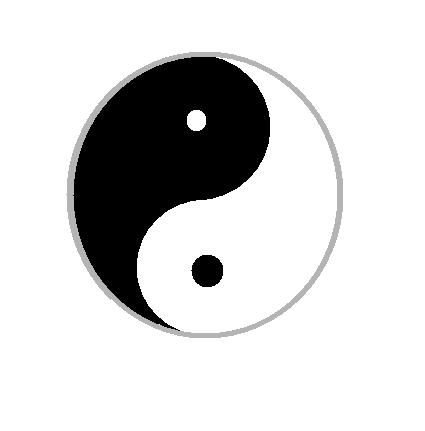Laozi's Dao De Jing 26-30 (老子道德經 26-30) from Administrator's blog

第二十六章 重為輕根,靜為躁君。是以君子終日行不離輜重。雖有榮觀,燕處超然。 奈何萬乘之主,而以身輕天下?輕則失根,躁則失君。
Chapter 26 1. Gravity is the root of lightness; stillness, the ruler of movement. 2. Therefore a wise prince, marching the whole day, does not go far from his baggage waggons. Although he may have brilliant prospects to look at, he quietly remains (in his proper place), indifferent to them. How should the lord of a myriad chariots carry himself lightly before the kingdom? If he do act lightly, he has lost his root (of gravity); if he proceed to active movement, he will lose his throne.
第二十七章 善行,無轍跡,善言,無瑕謫﹔善數,不用籌策﹔善閉,無關楗而不可開 ,善結,無繩約而不可解。是以聖人常善救人,故無棄人﹔常善救物,故 無棄物。是謂襲明。故善人者,不善人之師﹔不善人者,善人之資。不貴 其師,不愛其資,雖智大迷,是謂要妙。
Chapter 27 1. The skilful traveller leaves no traces of his wheels or footsteps; the skilful speaker says nothing that can be found fault with or blamed; the skilful reckoner uses no tallies; the skilful closer needs no bolts or bars, while to open what he has shut will be impossible; the skilful binder uses no strings or knots, while to unloose what he has bound will be impossible. In the same way the sage is always skilful at saving men, and so he does not cast away any man; he is always skilful at saving things, and so he does not cast away anything. This is called 'Hiding the light of his procedure.' 2. Therefore the man of skill is a master (to be looked up to) by him who has not the skill; and he who has not the skill is the helper of (the reputation of) him who has the skill. If the one did not honour his master, and the other did not rejoice in his helper, an (observer), though intelligent, might greatly err about them. This is called 'The utmost degree of mystery.'
第二十八章 知其雄,守其雌,為天下谿。為天下谿,常德不離,復歸于嬰兒。知其白 ,守其黑,為天下式,常德不忒,復歸于無極。知其榮,守其辱,為天下 谷。為天下谷,常德乃足,復歸于朴。為天下式。朴散則為器,聖人用之 ,則為官長,故大制不割。
Chapter 28 1. Who knows his manhood's strength, Yet still his female feebleness maintains; As to one channel flow the many drains, All come to him, yea, all beneath the sky. Thus he the constant excellence retains; The simple child again, free from all stains.
Who knows how white attracts, Yet always keeps himself within black's shade, The pattern of humility displayed, Displayed in view of all beneath the sky; He in the unchanging excellence arrayed, Endless return to man's first state has made.
Who knows how glory shines, Yet loves disgrace, nor e'er for it is pale; Behold his presence in a spacious vale, To which men come from all beneath the sky. The unchanging excellence completes its tale; The simple infant man in him we hail.
2. The unwrought material, when divided and distributed, forms vessels. The sage, when employed, becomes the Head of all the Officers (of government); and in his greatest regulations he employs no violent measures.
第二十九章 將欲取天下而為之,吾見其不得已。天下神器,不可為也,不可執也。為 者敗之,執者失之。故物或行或隨,或噓或吹,或強或羸,或載或隳,是 以聖人去甚,去奢,去泰。
Chapter 29 1. If any one should wish to get the kingdom for himself, and to effect this by what he does, I see that he will not succeed. The kingdom is a spirit-like thing, and cannot be got by active doing. He who would so win it destroys it; he who would hold it in his grasp loses it.
2. The course and nature of things is such that What was in front is now behind; What warmed anon we freezing find. Strength is of weakness oft the spoil; The store in ruins mocks our toil. Hence the sage puts away excessive effort, extravagance, and easy indulgence.
第三十章 以道佐人主者,不以兵強天下。其事好還。師之所處,荊棘生焉。大軍之 后,必有凶年。善者果而已,不敢以取強。果而勿矜,果而勿伐,果而勿 驕。果而不得已,果而勿強。物壯則老,是謂不道,不道早已。
Chapter 30 1. He who would assist a lord of men in harmony with the Tao will not assert his mastery in the kingdom by force of arms. Such a course is sure to meet with its proper return. 2. Wherever a host is stationed, briars and thorns spring up. In the sequence of great armies there are sure to be bad years. 3. A skilful (commander) strikes a decisive blow, and stops. He does not dare (by continuing his operations) to assert and complete his mastery. He will strike the blow, but will be on his guard against being vain or boastful or arrogant in consequence of it. He strikes it as a matter of necessity; he strikes it, but not from a wish for mastery. 4. When things have attained their strong maturity they become old. This may be said to be not in accordance with the Tao: and what is not in accordance with it soon comes to an end.

The Wall